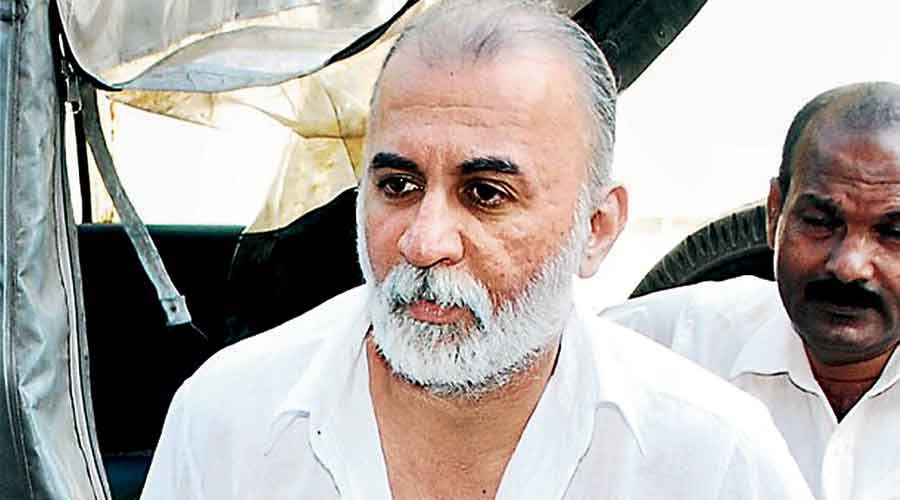A sessions court in Goa on Friday acquitted journalist Tarun Tejpal of charges of sexually assaulting a then colleague when he was editor-in-chief of Tehelka magazine.
Tejpal was accused of assaulting the woman colleague inside the elevator of a luxury hotel in Goa in 2013. The high-profile case was presented as a fight for justice for a young employee against a celebrity editor in a country where few speak out about abuse of power and sexual harassment in the workplace.
Tejpal, 58, was in court with his family when additional sessions judge Kshama Joshi pronounced the verdict around 10.45am.
“The court has acquitted Tejpal of all the charges. A detailed order about it will be made available later in the day,” advocate Suhas Velip, junior to Tejpal’s counsel Rajiv Gomes, told reporters. Gomes died of Covid last week.
The prosecution said it would challenge the acquittal in the high court.
After the verdict, a statement issued by Tejpal was read out to the media by his daughter Tara outside the court building in Mapusa town near Panaji.
The statement thanked the court for its “rigorous, impartial and fair trial and for its thorough examination of the CCTV footage and other empirical material on record”.
Tejpal said: “The past seven-and-a-half years have been traumatic for my family as we have dealt with the catastrophic fallout of these false allegations on every aspect of our personal, professional and public lives.”
Activists say women in Indian workplaces hesitate to speak up about sexual harassment by colleagues, managers or employers, fearful of losing their jobs or facing public opprobrium.
“The judicial system lets down another woman. No wonder women do not want to file a complaint with the police,” Kavita Krishnan, secretary of the All India Progressive Women’s Association, a Leftist group fighting for women’s rights, said on Twitter.
“At the end of it all, the courageous woman did not get even a tiny taste of justice.”
There was no response from the complainant.
Public prosecutor Francis Tavora said: “As soon as we get the detailed written order, we will approach the high court challenging it.”
The Goa police had registered an FIR against Tejpal in November 2013, after which he was arrested. He received bail in May 2014.
After the Goa crime branch filed a chargesheet, Tejpal faced trial under penal code sections 341 (wrongful restraint), 342 (wrongful confinement), 354 (assault or criminal force with intent to outrage modesty), 354A (sexual harassment), 354B (assault or use of criminal force to woman with intent to disrobe), 376(2)(f) (person in a position of authority over women, committing rape) and 376(2)k) (rape by a person in a position of control).
Friday’s acquittal comes after three adjournments of the verdict, from April 27 to May 12, then to May 19 and finally to May 21.
“We have felt the boot of the state, but all through it we have co-operated fully with the Goa police and the legal system, through hundreds of court proceedings,” Tejpal said.
He remembered his late advocate Gomes as a “dynamic and brilliant” lawyer.
With Tejpal as its editor, Tehelka had made a name for itself by exposing corruption and abuse of power in high places, especially in Atal Bihari Vajpayee’s NDA government. The magazine had also taken a stand against sexual violence.
India’s rape laws have been tightened and fast-track courts have been set up since the gang rape and murder of a young woman in a Delhi bus in 2012.
But the criminal justice system remains slow and cases are still taking an average of six years to reach a final ruling, according to governance-tracking group Daksh. Many cases fall by the wayside.











